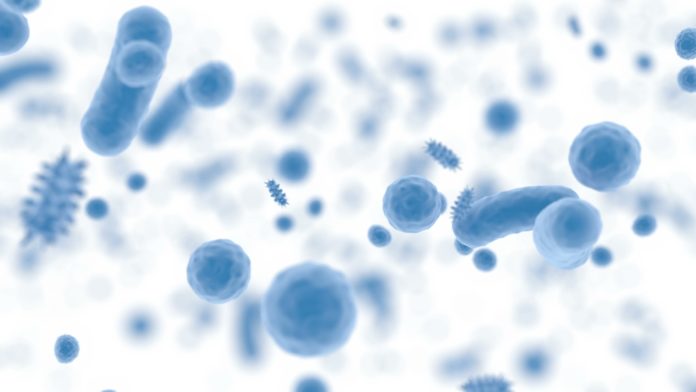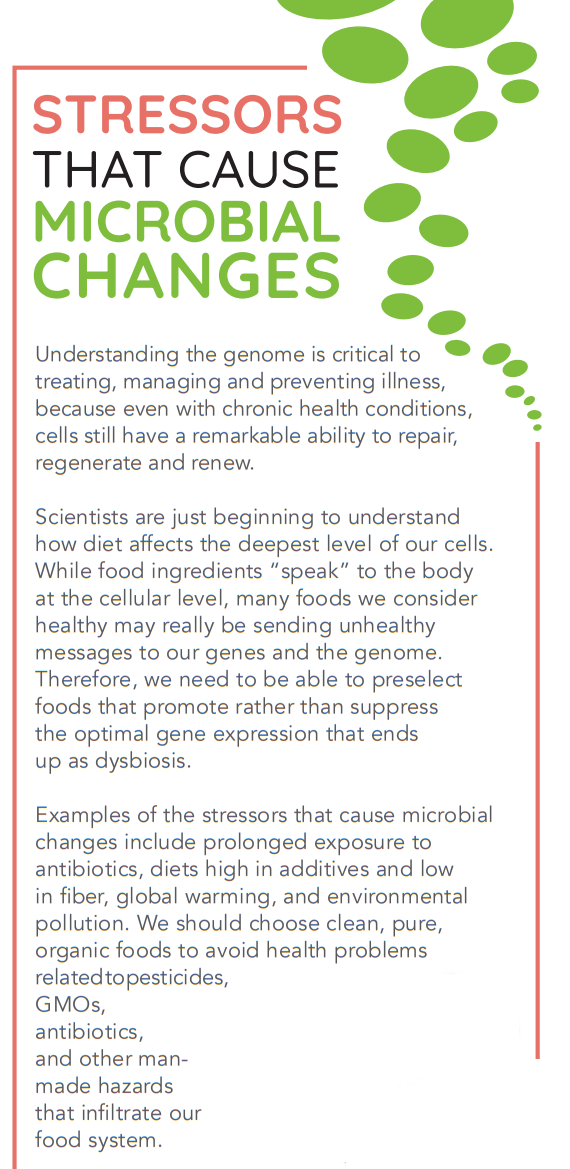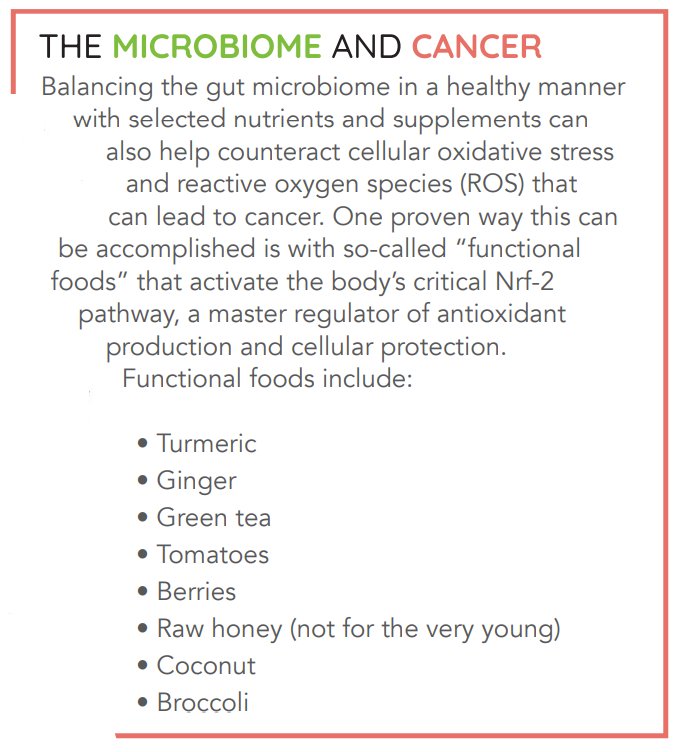Your pet’s microbiome

A dive into the mechanics of your dog or cat’s microbiome, and why it’s so important to his health and well-being.
A few years ago, many people had never heard the term “microbiome”. It has since become an important topic in both human and animal health, and we’re learning more about it all the time. This article takes a deeper dive into what the microbiome is, how it works, and why it’s so important to your dog or cat’s health – and your own.
Defining the microbiome
Discovered less than 20 years ago, the microbiome is the genetic material of all the microbes – bacteria, fungi, protozoa and viruses — that live on and inside the animal and human body. Healthy cells are in symbiosis (harmony) within the body, and are kept in this state primarily by the presence of a healthy, balanced microbiome.
Did you know? The number of genes within the microbes of the microbiome is 200 times the number present in the mammalian genome.
/* custom css */
.tdi_15.td-a-rec{
text-align: center;
}.tdi_15 .td-element-style{
z-index: -1;
}.tdi_15.td-a-rec-img{
text-align: left;
}.tdi_15.td-a-rec-img img{
margin: 0 auto 0 0;
}@media (max-width: 767px) {
.tdi_15.td-a-rec-img {
text-align: center;
}
}
The composition and function of the gut microbiome is influenced and controlled by optimizing the expression of health-sustaining genes, while suppressing genes that lead to disease. It is also regulated by epigenomic factors beyond the genes themselves, along with dietary ingredients that support overall health and, particularly, the so-called “gut-brain axis” (more on this later), in order to optimize brain health and memory. Thus, diet can create both beneficial and harmful effects on the microbiome, and on health and longevity.
 We and our dogs and cats depend on our microbiomes to stay alive: they protect us against germs, break down food to release energy, and produce vitamins. An imbalanced microbiome is a major player in all areas of health, including metabolic disorders, autoimmune and motor neuron diseases, autism, and cancer. It is present before birth, impacts maternal-offspring health outcomes (see sidebar), maintains the gut-brain axis, and interacts with the immune system.
We and our dogs and cats depend on our microbiomes to stay alive: they protect us against germs, break down food to release energy, and produce vitamins. An imbalanced microbiome is a major player in all areas of health, including metabolic disorders, autoimmune and motor neuron diseases, autism, and cancer. It is present before birth, impacts maternal-offspring health outcomes (see sidebar), maintains the gut-brain axis, and interacts with the immune system.
Did you know? Each individual’s microbiome is genetically unique.
Our microbiomes are being challenged
As the Earth’s ecosystems have been disrupted by human activity, more harmful gut bacteria have evolved during our lifetimes, due to a combination of environmental pollution, and exposure to chemicals, herbicides and antibiotics. Many strains of resistant microbes have emerged, and a third of more than 1,000 common drugs inhibit the growth of healthy human gut bacteria.
Understanding the gut-brain axis
The gut-brain axis helps regulate digestion and the movement of food through the gastrointestinal system. It also regulates cognitive and emotional functions. However, if the signal coming from the brain is incorrectly messaged or interpreted, the central nervous and enteric (gut) systems become dysregulated. This can alter intestinal motility and increase organ sensitivity, which contributes to the development of bowel disorders including inflammation, damage to the bowel surface, and even inflammatory bowel disease (IBD).
The gut-brain axis is also activated by physiological, pathological and emotional stress, which stimulates mucosal mast cells and increases the production of proinflammatory cytokines and other cell mediators.
 Did you know? Both acute and chronic stress increases intestinal permeability and leads to a “leaky gut”, which allows bacteria, viruses and fungi to enter the gut wall.
Did you know? Both acute and chronic stress increases intestinal permeability and leads to a “leaky gut”, which allows bacteria, viruses and fungi to enter the gut wall.
Supporting and maintaining gut microbiome health
The gut microbiome is the most diverse and abundant, so we need to focus on maintaining its health. We can help do this by providing the following:
- Prebiotics — g. spirulina from blue-green algae and unprocessed whole foods
- Probiotics — from mixed strains of Lactobacillus and Bifidobacteria spp, and from foods like yogurt, kefir, kimchi and sauerkraut.
- Digestive enzymes — protease, amylase, lipase, cellulase
- Immune-modulating supplements – e.g. the prebiotic soluble fiber, beta-glucan.
Other beneficial supplements that support the microbiome and gut health include:
- N-Acetylglucosamine (NAG) — helps IBD symptoms and reduces abdominal pain;
- Licorice root — a flavonoid-rich extract for gut ulcers, antioxidant and anti-inflammatory effects
- Aloe — used orally for ulcerative colitis and digestion
- Glutamine — protects the mucosal lining.
Did you know? Restoring the microbiome to a healthy state helps resolve bowel imbalances that are expressed clinically as dysbiosis, a condition that contributes to the cognitive and memory decline associated with aging and even to depression.
Microbiome restorative therapy
Recently, emphasis has been placed on providing fecal microbiota transplantation (FMT) or microbiome restorative therapy (MBRT) obtained from qualified healthy donors. Examples of companies that offer this therapy include Microbiome Restorative Therapy from Dr. Margo Roman (microbiomerestorativetherapy.com) and AnimalBiome (animalbiome.com). MBRT introduces a diverse population of healthy natural gut bacteria, and acts via a regulatory T-cell pathway that helps suppress food allergy and intolerances.
Benefits of a balanced microbiome
The benefits of a balanced microbiome are easy to observe in ourselves and our animals. They include:
- A reduction in the severity of eczema and other skin disorders
- Improved protein digestion (measurable by absent or reduced intestinal gas)
- Alleviation of constipation in seniors, both human and animal.
Science has learned a lot about the microbiome in recent years, and will discover more in the years to come. In the meantime, using what we know to help support the microbiome in our dogs, cats, and ourselves, can do a lot to improve overall health and well-being.
/* custom css */
.tdi_16.td-a-rec{
text-align: center;
}.tdi_16 .td-element-style{
z-index: -1;
}.tdi_16.td-a-rec-img{
text-align: left;
}.tdi_16.td-a-rec-img img{
margin: 0 auto 0 0;
}@media (max-width: 767px) {
.tdi_16.td-a-rec-img {
text-align: center;
}
}



